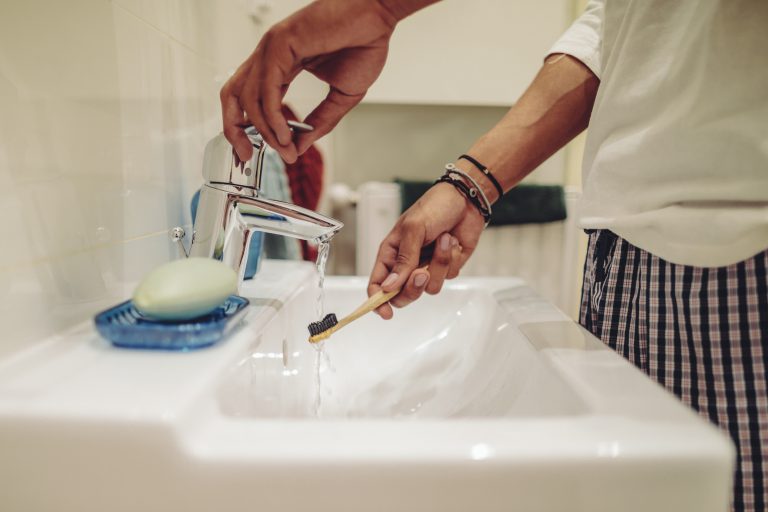Getting braces is an important first step toward your best smile. The second step in your orthodontic treatment is properly taking care of them! Regular maintenance can help you avoid damage to your teeth and prevent you from lengthening your treatment time.
Your first time with braces
When you first get your braces, you may feel a little tender or sore as your mouth adjusts. This is perfectly normal! One easy solution to ease discomfort is to gargle with salt water. Dissolve one teaspoon of salt in eight ounces of lukewarm water. Swish it around for a couple of minutes and then spit it out—do not swallow. After two or three days, the general soreness should go away. If not, an over-the-counter pain reliever and/or a topical anesthetic will also help.


Wax care
It is also common for your lips, cheeks, and tongue to toughen up in about one or two weeks after getting braces as they adjust to the device. This might cause some irritation. We would be happy to give you some wax to put over the braces to ease the contact. If you need wax, please let us know.
Braces wires
You may also notice your teeth feel loose after getting your braces, but don’t worry! This is a normal part of aligning your smile. Your braces are loosening your teeth to move them into the right position. Once they are there, your teeth will settle back in and become secure again.
Taking care of your braces does not have to be hard; it just requires a little extra attention. If you notice that the wires and bands on your braces are coming loose, please contact us. You can temporarily fix a loose wire by gently pushing it back to its original position with a pencil eraser, Q-tip, or the back of a spoon. If the loose wire is causing irritation to your lips or cheeks, put wax over the area to relieve the pain. If a piece of your braces falls off, be sure to keep it secure in a container and bring it when you come into the office. And, of course, if you experience some kind of accident near your mouth, be sure to check your braces immediately for broken parts and call our office as soon as possible.


Brushing with braces
It is very important to brush your teeth three to four times a day and to floss once a day. Brushing and flossing ensure that your teeth and gums are healthy throughout the treatment; otherwise, consistently poor hygiene can slow down tooth movement and lengthen treatment time as your teeth move more slowly through red and puffy gums. Be consistent with your dental hygiene habits and your braces will be freed up to work more efficiently.
Eating with braces
Foods to avoid with braces
When you have braces, you will need to make some changes with your diet. Chewy, sticky, or hard foods can damage braces, bend wires, or pop off brackets.
Always steer clear of:
- Hard nuts
- Tough meats
- Corn on the cob
- Croutons
- Caramels
- Popcorn
- Crunchy carrots
Foods you can eat with braces
-
Creamy mashed potatoes
-
Soothing smoothies
-
Cheese
-
Soft fruits
-
Noodles
-
Soups



Breaking bad habits
Wearing braces does not have to be an inconvenience! With a little extra care, you can live your life normally and still do most of the things that you love. But it’s imperative that you cut out any of those “bad” habits we’re all guilty of from time to time. Namely, using your teeth to open or bend things, grinding your teeth, biting your nails, or skipping brushing or flossing. Remember, your braces can only do their job if you take care of them.